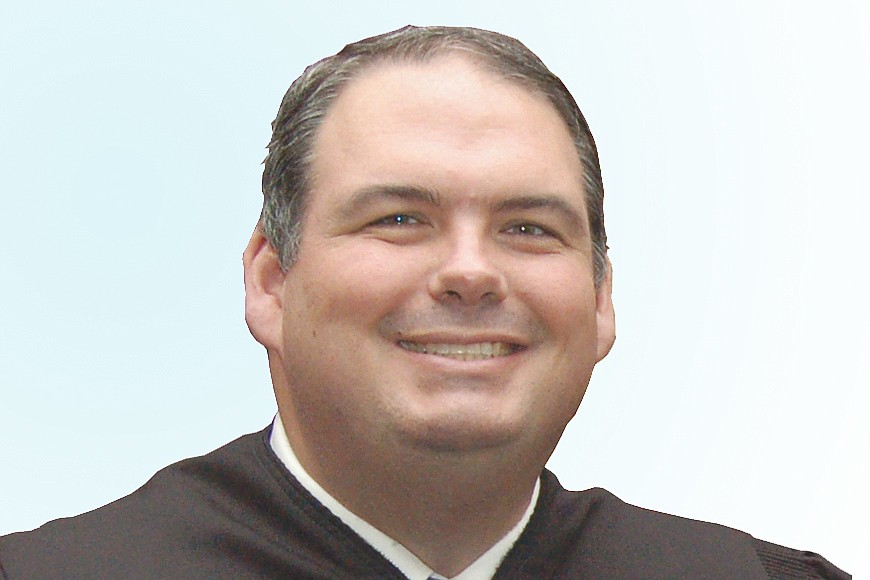
By Circuit Judge Eric Roberson, Special to the Daily Record
The First Amendment protects many of our nation’s core, fundamental rights:
“Congress shall make no law respecting an establishment of religion, or prohibiting the free exercise thereof; or abridging the freedom of speech, or of the press; or the right of the people to peaceably assemble, and to petition the government for a redress of grievances.”
A fundamental concept to understanding the Constitution and the Bill of Rights is that the federal government has no inherent power – but only the powers granted to it by We The People.
In advocating for the Constitution to be ratified, James Madison wrote that the powers delegated to the federal government are “few and defined” but the powers of the state are “numerous and indefinite.”
The Bill of Rights was part of a compromise to ensure the Constitution was ratified. Some argued that there was no need for a Bill of Rights because any rights not granted to the federal government were retained by the states and by the people.
Those opposing the Constitution feared that it would lead to civil rights and liberties being taken by the over-centralized government. They agreed to support the Constitution on the condition of adopting certain amendments protecting core liberties.
It’s no coincidence that these rights were set out in the very first amendment put forward.
Landmark cases
Although the First Amendment clearly states that Congress shall make no law abridging the freedom of speech, the Supreme Court has carved out many exceptions.
Many cases revolve around protests of war and the draft. Leaflets opposing the wartime draft were not protected if they posed a “clear and present danger of a significant evil that Congress has power to prevent.”
Burning draft cards was not protected as a form of speech but students wearing black armbands to protest the Vietnam War was. A jacket that explicitly disagreed with the draft was protected.
It’s easy to protect speech that you agree with, but the First Amendment also protects odious and highly disagreeable speech. For example, burning the American flag was protected as a form of speech. Hate speech at a Ku Klux Klan rally was protected as well. A blanket ban on cross burning was found to be unconstitutional.
The Child Online Protection Act, designed to prevent minors from accessing pornography online, was struck down as overly restrictive of otherwise protected speech.
The Supreme Court also has protected the press from laws seeking to restrict its ability to report. Virtually all attempts to prevent the publication of information – called prior restraint – have been rejected. This allowed the Pentagon Papers to be published over a claimed threat to national security. It also allowed the press to report on police testimony during a murder trial.
Reports about public officials are protected unless they are knowingly false or made with reckless disregard for the truth. Public figures, such as celebrities, must show false statements were made with actual malice to recover damages.
Recent cases
Sometimes there is an element of humor in First Amendment cases.
Recently there was a case with a motorist who received a traffic violation and expressed their displeasure with a “one finger salute.” The officer stopped her a second time and upgraded the ticket to a more serious offense.
A federal court refused to dismiss the motorist’s lawsuit and held that “any reasonable officer” would know that the gesture was protected by the First Amendment.
The ubiquity of social media presents new challenges. Recently a federal judge declared that President Donald Trump violated free speech rights by blocking critics from his Twitter feed.
The Supreme Court is currently considering the issue of whether a private company can be considered a state actor and, thus, be sued for First Amendment violations. This could have far-reaching implications for social media companies censoring its users’ speech.
The tension between the president and the media has yielded a recent decision on freedom of the press. When the White House revoked the press pass of a reporter critical of the president, a federal court ordered that the credential be reinstated on First Amendment grounds.
The freedoms of speech and of the press are cornerstones of our nation’s liberty. These freedoms were core to our country’s founding.
There have been landmark cases that set out what is protected speech and what can be censored. Yet, the need for these protections is as timely as ever.
On Law Day, take a minute to reflect on your freedom of speech – maybe even exercise it. Take the opportunity to read the news or social media posts that are critical of the government.
Don’t take these freedoms for granted.
Fourth judicial circuit Judge Eric Roberson was appointed to the bench in 2017 by Gov. Rick Scott.